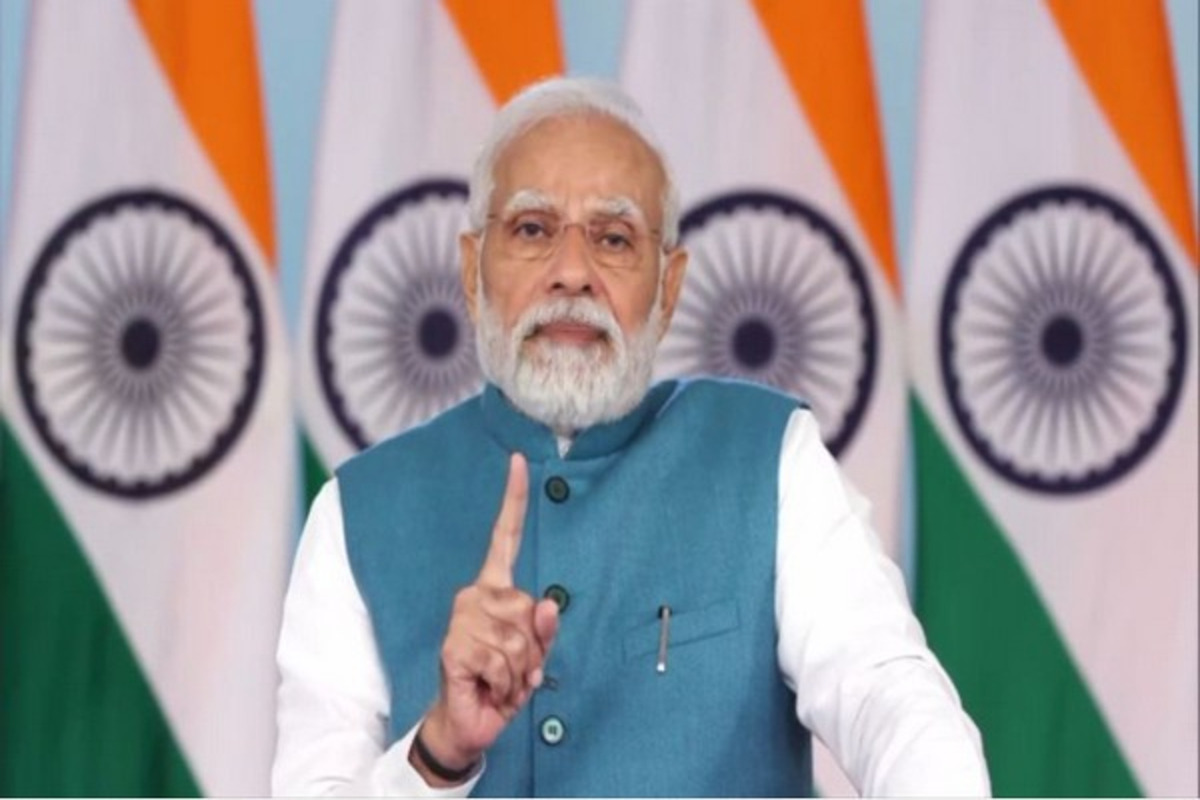FM announces PM Dhan-Dhaanya Krishi Yojana to boost agriculture
Finance Minister Nirmala Sitharaman on Saturday announced ‘Prime Minister Dhan-Dhaanya Krishi Yojana’, which is likely to aid 1.7 crore farmers to boost agricultural productivity.
The PM emphasised that there was no requirement for institutions acting against the corrupt and corruption like the CVC to work on any political agenda but to work towards making the lives of ordinary citizens simpler.

File Photo
Calling for an administrative ecosystem that has zero tolerance for corruption, Prime Minister Narendra Modi today said institutions acting against the menace need not be defensive and must ensure that no corrupt person, howsoever powerful he might be, was allowed to go scot-free.
”No corrupt person should get political-social support, every corrupt person should be put in the dock by society. It is necessary to create such an environment,” he said addressing a programme marking Vigilance Awareness Week of the Central Vigilance Commission (CVC).
Advertisement
The PM emphasised that there was no requirement for institutions acting against the corrupt and corruption like the CVC to work on any political agenda but to work towards making the lives of ordinary citizens simpler.
Advertisement
Touching upon what he called a worrying trend, Modi said; “We have seen that many times the corrupt people are glorified in spite of being jailed even after being proven to be corrupt. This situation is not good for Indian society. Even today, some people give arguments in favour of the corrupt who have been found guilty.”
The PM declared that for a developed India, trust and credibility were critical and claimed that previous governments not only lost people’s confidence but also failed to trust people. The legacy from the long period of slavery of corruption, exploitation, and control over resources, unfortunately, received more strength after the independence. This severely harmed at least four generations of this country, he said. “We have to change this decades-long way fully in the Azadi ka Amrit Kaal,” the PM added.
Recalling his clarion call from the ramparts of Red Fort for a decisive battle against corruption, Modi pointed out two key reasons for corruption that hindered people’s progress i.e. lack of amenities and unnecessary pressure from the government.
For a very long time, this absence of amenities and opportunity was deliberately kept alive and a gap was allowed to widen leading to an unhealthy competition of a zero-sum race. This race fed the ecosystem of corruption. ”
Corruption created by this scarcity affects the poor and middle classes the most. If the poor and middle class spend their energy arranging for the basic amenities, how will the country progress?” he wondered.
He said his government was trying to change this system of scarcity and pressure for the last eight years. It was trying to fill the gap between supply and demand. The three ways adopted to achieve this was advancement in technology, taking basic services to the saturation level, and heading towards ”Atmanirbharta”.
With regard to the use of technology, the PM mentioned linking PDS to technology and removing crores of fake beneficiaries, and saving more than Rs two lakh crores from going into the wrong hands by adopting Direct Benefit Transfer (DBT). Similarly, the adoption of transparent digital transactions and transparent government procurement through GeM was making a huge difference.
Speaking on taking the basic facilities to the saturation level, he pointed out that reaching every eligible beneficiary of any government scheme and achieving the goals of saturation would put an end to discrimination in society while eliminating the scope of corruption. Highlighting the principle of saturation that was adopted by the government for the delivery of every scheme, he gave examples of water connections, pucca houses, electricity connections, and gas connections.
The PM was of the view that too much dependence on foreign goods has been a big cause of corruption. He highlighted the government’s push towards ”aatmanirbharta” in defence and underlined that the possibility of scams was ending as India would be manufacturing its own defence equipment, from rifles to fighter jets to transport aircraft.
He also asked the vigilance community to think about modernising their audits and inspections. “The will which the government is showing against corruption, the same will is necessary to be seen in all the departments as well. For a developed India, we have to develop such an administrative ecosystem, which has zero tolerance on corruption”, he said.
The Prime Minister asked for a system where corruption-related disciplinary proceedings were completed in time-bound mission mode.
He also suggested continuous monitoring of criminal cases and asked to devise a way of ranking departments on the basis of pending corruption cases and publishing the related reports on a monthly or quarterly basis. He also called for streamlining of the vigilance clearance process with the help of technology
Advertisement